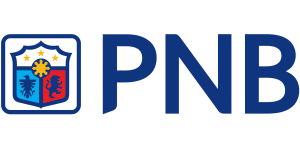
Philippine National Bank
PNB is the first universal bank of the Philippines and the eigth-largest of the country
Products
Description
Philippine National Bank (PNB) is the first bank in the Philippines to have been granted a universal banking license. It’s currently the eighth-largest bank in the country with ₱1,195,063 million in assets. It was established by the government but later became a private commercial bank.
Products of the PNB
Like most universal banks, the Philippine National Bank offers a full range of products to its clients, which include:
-
Accounts: PNB offers a few different account options for clients to choose from. There are 7 savings, 4 checking, and 9 time deposit accounts. The bank also offers the most variety in foreign currency accounts, as clients can open one in US dollars, euros, renminbi (Chinese yuan), and yens.
-
Cards: There are 12 options for Visa, MasterCard, and Union Pay credit cards and 2 options for prepaid cards. Some of the options are co-branded, like the card for Alumni of La Salle Green Hills and the prepaid card with Philippine Airlines.
-
Loans: PNB grants housing, car, and personal loans. To qualify for a loan, clients must be at least 21 years old, but they cannot be more than 65 years old at the end of the loan’s term.
-
Investments: clients can invest in fixed-income securities and trust funds with PNB. For securities there are different options for varying risk profiles, so clients can choose the risk level they’re most comfortable with.
-
Insurance: PNB has 13 life insurance options that can be used to protect health, secure a retirement, or fund education for children, among other purposes. It also offers 5 non-life insurance products for cars, accidents, and travel.
History of the PNB
The Philippine National Bank was established by the government in 1916. At the time, the new bank was an attempt to support industrial and agricultural development at a time when World War I generated demand for the Philippines’s major export crops. The PNB was authorized to grant loans, receive deposits, and open foreign credits. It also functioned as the de facto central bank, as it had the special power to print notes.
During the Japanese occupation, PNB briefly shut down in 1942 and reopened a month later under the supervision of the Japanese authorities. After the war was over, the bank assisted the National Treasury by acquiring the assets and assuming the liabilities of its banking division.
In 1949 the Central Bank of the Philippines was established, so the PNB lost all the powers it had until then, like issuing notes and guarding bank reserves. In 1955, it was authorized to operate as an investment bank, and by 1963 it had created the National Investment and Development Corporation to finance business ventures. In 1980, it became the first universal bank in the country.
The PNB started to be privatized in 1989 when 30% of its stocks were offered to the public on the stock exchange. By 1996 the Securities and Exchange Commission approved the change in status to a private corporation, as the government-owned stocks had reduced to 46% of the total.
In 2000, a new group of private stockholders held 69.32% of the PNB and injected billions of pesos to improve the bank’s financial situation. However, later that same year the bank started having a liquidity crisis that would last a few years.
To save the bank, the government stepped in in 2002. It increased its shares from 16% to 44,98% and began a 5-year rehabilitation program. With the program up and running, the government sold back most of its shares in 2005.
In 2007 the PNB settled a ₱6.1 billion debt to the Philippine Deposit Insurance Corporation. The settlement was more than 4 years ahead of the due date of the loan, so the rehabilitation program worked and the financial situation had improved. The program expected profits by 2005, but PNB became profitable in 2003. Also in 2007, the government completely exited the bank, selling the rest of its remaining shares.
Bank data
Headquarters
International presence
Philippines, Hong Kong, Japan, China, Singapore, Guam, Bahrein, Saudi Arabia, Kuwait, United Arab Emirates, Qatar, Oman, France, Italy, United Kingdom, Germany, United Estates, Canada
Contact data
Website
Reviews about
1 review
Conditions
User experience
Customer service
The customer service at the PNB 30th Street BGC Taguig branch (beside Landmark) is terrible. Staff are unhelpful and slow, and there’s no sense of urgency even for quick transactions. This branch seriously needs better management and staff training.